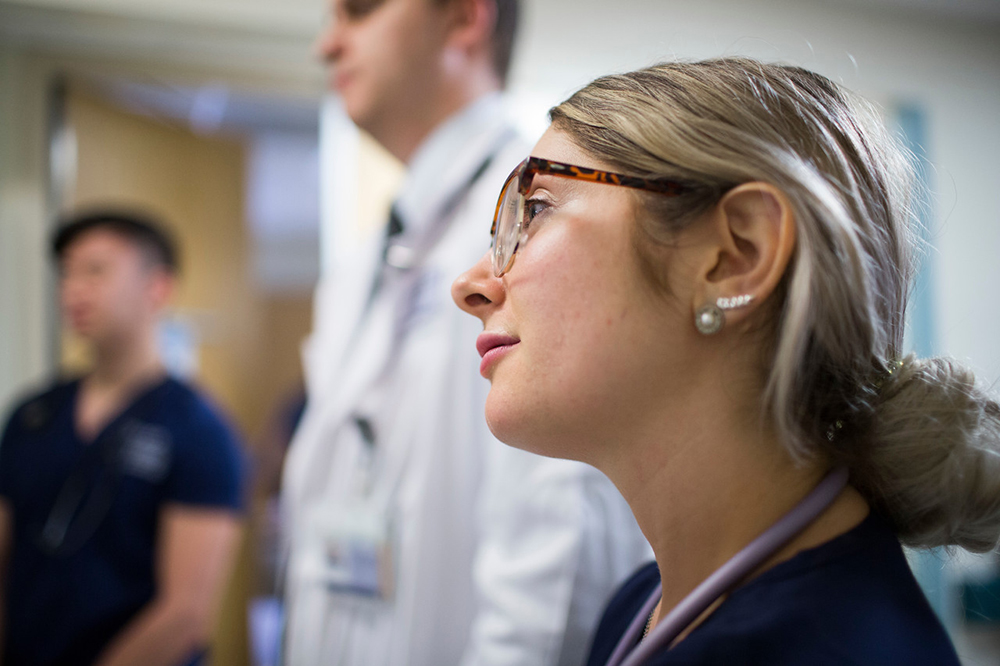Emory's StARR program is designed to address a nationwide shortage of physician scientists and offers in-depth instruction in the fundamentals of clinical and translational research, as well as a robust, multidisciplinary mentoring program that is tailored to the specific needs of resident physicians.
Program Overview
Emory is one of only three institutions nationwide selected to receive the Stimulating Access to Research in Residency (StARR) R38 award from the National Institute of Allergy and Infectious Diseases (NIAID). This program has three month blocks of contiguous research time embedded in the PGY-2 and PGY-3 categorical training program and is followed by a PGY-4 year of immersive research experience. StARR graduates will submit a career development NIH K38 or equivalent grant application. Graduates are also highly attractive fellowship applicants or junior faculty candidates.
PGY-1
StARR residents complete a traditional PGY-1 training year and are eligible to apply for the award in the winter of PGY-1. A maximum of three StARR scholars are selected from each intern class. During the second half of PGY-1 StARR scholars work with program leadership and lead mentors to begin assembling their research advisory team.
PGY-2
During PGY-2, StARR scholars will develop a mentored clinical research project to be carried out under the guidance of a lead mentor. Mentor selection is made in consultation with program leadership and the multidisciplinary StARR award mentoring program. StARR scholars also participate in selected short courses, research workshops, seminars, and journal clubs. They are also afforded three months of StARR research time to obtain IRB and other regulatory approvals to being implementation of their mentored research project. During this year, StARR scholars will also have their first Research Advisory Board meeting.
PGY-3
During the PGY-3 year, StARR scholars will complete their remaining required short courses, research workshops, seminars, and journal clubs. Residents will also continue: three months of research time to support continued active implementation of their mentored research projects; regular one-on-one mentoring meetings; and a second Research Advisory Board meeting.
PGY-4
PGY-4 is considered a StARR chief year in research. During this year, StARR awardees dive deeply into their mentored research project. They will complete data analyses and prepare abstracts and manuscripts with the goal of aggregating results into preliminary data for K38 and other career development opportunities. PGY-4 StARR scholars also participate in research education and have resident research-related administrative and teaching duties.
Program Benefits
StARR scholars receive NIH salary support during their research blocks to enable them to spend at least 80 percent of their professional time on research training. There is a $20,000/year technical budget for career development/research-related expenses, and a $3,000/year travel budget to attend scientific meetings.


